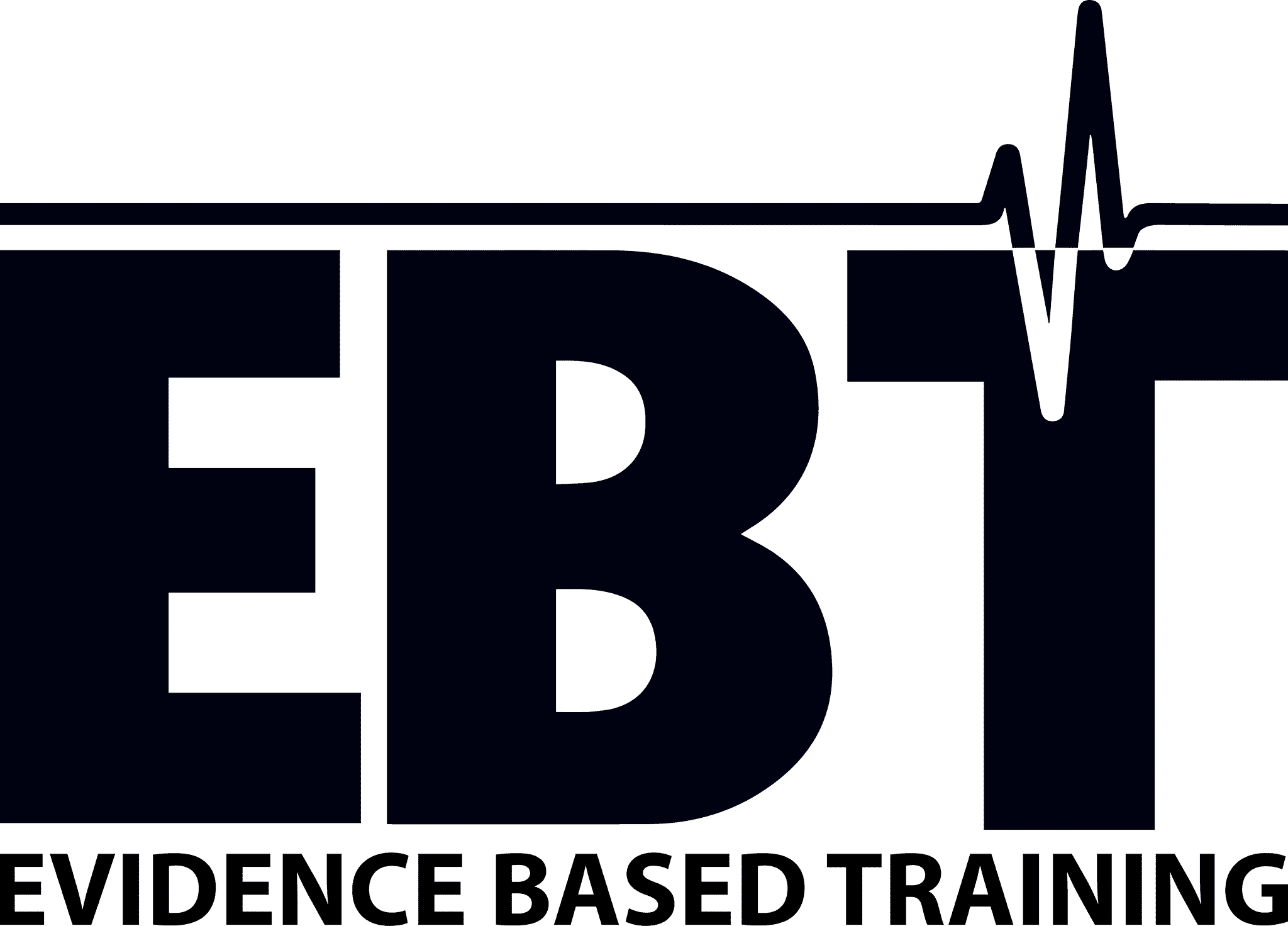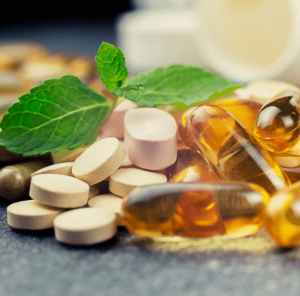How Ashwagandha works?
Since many of ashwagandha’s uses have not been scientifically validated, skepticism can naturally be expected when presented with an herb purportedly useful in so many ailments. In Ayurvedic medicine there is a class of herbs, including Ashwagandha, known as adaptogens or vitalizers. Ayurvedic medicine is a system of medicine with historical roots in the Indian subcontinent.
Alternative medicine: Ayurveda traditions
Globalized and modernized practices derived from Ayurveda traditions are a type of alternative medicine. Adaptogens are claimed to cause adaptive reactions to disease, are useful in many unrelated illnesses. They are claimed to produce a state of nonspecific increased resistance to adverse effects of physical, chemical, and biological agents. An example of nonspecific resistance was studied mostly regarding the cortisol levels and its role in reduction of stress. (2)
Adaptogens usually contain active plant molecules called glycosides or alkaloids. The chemistry of Ashwagandha has been extensively studied and over 35 chemical constituents have been identified, extracted, and isolated. Isopelletierine from Withania somnifera (Ashwagandha). Is one example of a biologically active alkaloid molecule. (1)
What is Ashwagandha good for?
Withania somnifera (ashwagandha, WS) is widely used in Ayurvedic medicine, the traditional medical system of India. It is an ingredient in many formulations prescribed mostly in India or a variety of musculoskeletal conditions (e.g., arthritis, rheumatism), as a general tonic to increase energy, improve overall health and longevity, and prevent disease in athletes, the elderly, but far from all of these benefits have been proven scientifically.
Most studies that evaluate WS scientifically have been conducted on mice, i.e. they can only give us HINTS about how the herb it works rather than if it works in humans. For example, animal studies looking at anti-inflammatory effects have found benefits for arthritis and animal stress studies have found that it lowers stress behavior in animals. Antitumor studies on animals are inconclusive, and thus the claim that WS can cure or prevent cancer has not been proven! (1)
Are Ashwagandha tablets safe?
A study was intended to evaluate dose-related tolerability, safety, and activity of WS formulation in normal individuals. The design was a prospective experimental study giving variable doses in volunteers. Worth noting is that the study is so-called ”open labeled” meaning that participants werent blinded and know how much ashwagandha they were getting. This is important as it the lack of blinding can increase the placebo effect.
Anyways, eighteen apparently healthy volunteers (12M:6F, age:18-30 years, and BMI: 19-30) were enrolled. After baseline investigations, they received WS capsules (Rx) (aqueous extract, 8:1) daily in two divided doses with increase in daily dosage every 10 days for 30 days (750 mg/day ×10 days, 1 000 mg/day × 10 days, 1 250 mg/day × 10 days). Volunteers were assessed for symptoms/signs, vital functions, hematological and biochemical organ function tests.
Ashwagandha seems to be well tolerated
Lean body weight and fat% were computed from skin fold thickness measurement. Adverse events were recorded, as volunteered by the subjects. All but one volunteer tolerated WS without any adverse event. One volunteer showed increased appetite, libido, and hallucinogenic effects with vertigo at the lowest dose and was withdrawn from study. Organ function tests were in normal range before and after the intervention. WS, in escalated dose, was tolerated well. The formulation appeared safe and strengthened muscle activity. (3)
Based on this study, Ashwagandha seems relatively safe. In this population, 1 out of 18 people (5.5%) affected by vertigo and hallucination. However, the study is too small to know if the actual frequency of side effects is larger or smaller than 5.5%. Furthermore, the lack of a control group makes it impossible to know if the effects are ”nocebo” of placebo-induced.
The use of Ashwagandha During Pregnancy
There is evidence that it could cause miscarriages. We don’t know enough about the effects of using this herb during breastfeeding. It may be unsafe. If you are trying to have a child or if you have had previous miscarriages in your life, Ashwagandha is not for you. Just because it is natural it doesn’t make it beneficial. (9)
Ashwagandha may Lower Blood Sugar Levels
If patients are taking a medication to lower blood glucose it could make their levels go dangerously low. And if their levels go too low, they can pass out. The consequences of low blood glucose can be just as dangerous as high blood sugar. (6)
If you have high blood pressure levels you can also lose consciousness and pass out from Ashwagandha. (6)
Ashwagandha and Autoimmune Disease
Ashwagandha can increase the symptoms of autoimmune disorders because it stimulates the immune system. (7)
Ashwagandha may increase thyroid hormone levels. If you are on thyroid medicine you should thus not take WS. If your thyroid tests are irregular, please consult your physician. (8)
Ashwagandha can inhibit the central nervous system. Patients going on anesthesia need to consult their physician if they are on Ashwagandha. (10)
For healthy individuals it may be beneficial but we suggest that you should check with your physician before taking this supplement.
Will Ashwagandha Help me Lose Weight?
A total of 52 adults (38 men and 14 women) between the ages of 18 and 60 years were enrolled in the present study, a Double-Blind, Randomized, Placebo-Controlled Trial, and received either treatment or placebo. (6)
Of the 52 enrolled subjects, 2 (1 each in the placebo and treatment group) were not compliant with the study protocol. Data analysis was done on both the 50 subjects who actually completed the study “per protocol” (PP) and a separate analysis was done for all 52 subjects “intended to treatment” (ITT). (6)
After 8 weeks, the study found that Ashwagandha consumption leads to about 1 kg significantly more weight lost compared to placebo. Markers of stress and levels of the stress hormone cortisol were also significantly lower. Whether these effects are sustained after 8 weeks is unknown.
Here are the results:
| Ashwagandha (n=25) | Placebo (n=25) | P Value | |
| Mean body weight (kg) | |||
| Baseline | 76.35 (8.71) | 77.16 (8.46) | .7383 |
| Week 4 | 74.70 (7.81) | 76.32 (7.99) | .4733 |
| Week 8 | 74.03 (7.29) | 76.03 (7.72) | .3523 |
| Mean change from baseline: | |||
| Week 4 | -1.64 (1.57) | -0.84 (1.24) | .0503 |
| Week 8 | -2.32 (1.99) | -1.13 (1.24) | .0148 |
| Mean serum cortisol level (µg/dL) | |||
| Baseline | 17.25 (4.41) | 16.76 (3.95) | .6835 |
| Week 4 | 14.41 (2.94) | 15.63 (3.07) | .1798 |
| Week 8 | 13.41 (2.17) | 15.44 (3.20) | .0132 |
| Mean change from baseline: | |||
| At 4 weeks | -2.27 (3.09) | -1.13 (2.14) | .0328 |
| At 8 weeks | -3.83 (3.18) | -1.32 (2.10) | .0019 |
| Mean perceived stress scale score | |||
| Baseline | 20.31 (4.04) | 19.96 (3.99) | .759 |
| Week 4 | 15.73 (4.38) | 18.50 (5.33)+ | .0519 |
| Week 8 | 13.65 (3.14) | 17.83 (5.16) | .0015 |
| Mean changes from baseline: | |||
| Week 4 | -4.48 (4.16) | -1.46 (2.57) | .0025 |
| Week 8 | -6.65 (4.80) | -2.12 (2.68) | <.0001 |
Data on adverse events were collected and analyzed for the ITT population, considering all 52 subjects. Only 2 subjects (4%) out of 52 reported effects such as giddiness, heaviness of head, blurring of vision, and/or hyperacidity. The severity of these adverse events was mild and temporary. The treatment was tolerable to most of the subjects in both groups. (6)
These results support the conclusion that because of the anxiolytic and antistress properties of Ashwagandha, subjects rejected the use of food as a method for coping with stress. Cravings for food due to stress can lead to unconscious eating. The reduction of body weight and body mass index observed in the present study further supports hypothesis that Ashwagandha root extract exerts anti-stress activity, resulting in reduced food cravings and better eating behaviors. (6)
Cortisol and fat storage
Stress-induced increase in serum cortisol level leads to increased visceral fat deposits in humans. Prolonged stress also increases circulating glucocorticoid concentrations, which may eventually promotes the ingestion of carbohydrates and fat and decrease energy expenditure. (6)
The results of this study suggest that Ashwagandha root extract reduces psychological and physiological markers of stress, improves mental well-being and reduces serum cortisol level food cravings. It also improves eating behaviors. Therefore, Ashwagandha root extract can be useful for body-weight management in patients experiencing chronic stress, especially in these modern times when stress is so common among people. (6)
Ashwagandha Dosage?
When we talk about dosage of Ashwagandha we can’t say the exact amount that you can use a limited number or days or for a long-term supplementation plan. Given that different studies used different dosages and very few adverse reactions were reported there is not a perfect dosage. Most studies used 300mg of Ashwagandha root twice a day. (2, 4, 5)
Given these dosages that were used in many controlled studies we can only suppose that 500mg of Ashwagandha root can be used once a day for at least one month in order to have some benefits. Some studies mentioned above used a greater dosage and very few adverse reactions were reported.(3)
We hope that future studies will find the perfect concentration of WS root in order to be safe and efficient.
Will Ashwagandha Help Me Sleep?
Insomnia and poor quality of sleep results in chronic sleep loss that is associated with various other sleep and metabolic disorders. Many conventional drugs to treat insomnia have an addiction risk as well as other side effects. Triethylene glycol (TEG), which is also an active component of Ashwagandha leaves, is a potent sleep-inducing molecule.
Ashwagandha leaf or root crude powder itself is able to enhance the quality of sleep. One study showed that the sleep-promoting active component present in Ashwagandha leaves is TEG and validated the sleep inducing potential of TEG by animal experiments. However, further studies in humans are still needed to delineate its molecular targets and sleep-promoting pathways. (11) TEG induces sleep by increasing the number of non-REM (”non dream sleep”) episodes and by decreasing wake episode duration.
Although Ashwagandha can improve sleep there aren’t a lot of studies which can certify this. Most studies that were done showed an improvement in sleeping but that was mostly because its effect on hormones. The medicinal herb appears to help lower levels of cortisol, a hormone produced by your adrenal glands in response to stress.
Moreover, 500–600 mg of ashwagandha per day for 6–12 weeks may reduce anxiety and lower the likelihood of insomnia in people with stress and anxiety disorders (2,3)
Consult Your Doctor
There are many more potent ways of dealing with insomnia, depression and anxiety disorders and if think you might be suffering from any of these disorders we recommend you see your doctor for proper diagnosis and treatment. Depending on your condition, several types of therapy (cognitive behavioral therapy, psychodynamic therapy) as well as several non-addictive medications like selective serotonin reuptake inhibitors (SSRIs) are currently much more appropriate choices than ashwagandha.
Buy Ashwagandha
If you would like to try Ashwagandha, we recommend this manufacturer sold on GymGrossisten in Sweden.
Summary: Should I take Ashwagandha?
We can summarize this analysis as following:
- Ashwagandha is an ancient herb from the class of adaptogens and can be taken by everyone except the persons with different pathologies or conditions mentioned above.
- The average dosage to take per day isn’t certified by anyone but mostly 500 mg of WS root didn’t report many adverse effects.
- It can help you lose weight and sleep better in an indirect way by regulating your cortisol levels and therefore helping you to cope with stress.
In conclusion, altough the results from these reviews are quite promising for the use of Ashwagandha as a multi-purpose medicinal agent, several limitations exist in the current literature. While ashwagandha has been used successfully in Ayurvedic medicine for centuries, more clinical trials should be conducted to support its therapeutic use. If you want to learn how to succeed with your diet, without taking any supplements, you should definitely read our e-Book.
Article written by Vlad George Rãdulescu
1. Scientific Basis for the Therapeutic Use of Withania somnifera (Ashwagandha): A Review by Lakshmi-Chandra Mishra, MD (Ayur), PhD, Betsy B. Singh, PhD, Simon Dagenais, BA (http://anaturalhealingcenter.com/documents/Thorne/articles/Ashwagandha.pdf)
2. A prospective, randomized double-blind, placebo-controlled study of safety and efficacy of a high-concentration full-spectrum extract of ashwagandha root in reducing stress and anxiety in adults. Chandrasekhar K1, Kapoor J, Anishetty S; doi: 10.4103/0253-176.106022.
3. Exploratory study to evaluate tolerability, safety, and activity of Ashwagandha (Withania somnifera) in healthy volunteers. Raut AA, Rege NN, Tadvi FM, Solanki PV, Kene KR, Shirolkar SG, Pandey SN, Vaidya RA, Vaidya AB. doi: 10.4103/0975-9476.100168
4. Body Weight Management in Adults Under Chronic Stress Through Treatment With Ashwagandha Root Extract; A Double-Blind, Randomized, Placebo-Controlled Trial
Dnyanraj Choudhary, MD, Sauvik Bhattacharyya, MPharm, PhD, and Kedar Joshi, MD doi: 10.1177/2156587216641830
5. Efficacy and Safety of Ashwagandha (Withania somnifera (L.) Dunal) Root Extract in Improving Memory and Cognitive Functions; Dnyanraj Choudhary , MD, Sauvik Bhattacharyya , MPharm, PhD & Sekhar Bose , MPharm, PhD https://doi.org/10.1080/19390211.2017.1284970
6. Ahumada F, Aspee F, Wikman G, Hancke J. Withania somnifera extract: Its effects on arterial blood pressure in anaesthetized dogs. Phytother Res 1991;5:111-14. DOI: 10.1002/ptr.2650050305.
7. Davis L and Kuttan G. Immunomodulatory activity of Withania somnifera. Journal of Ethnopharmacology. Volume 71, Issues 1–2, July 2000, Pages 193–200. doi:10.1016/S0378-8741(99)00206-8.
8. Gannon J, Forrest P, and Chengappa K N Roy. Subtle changes in thyroid indices during a placebo-controlled study of an extract of Withania somnifera in persons with bipolar disorder. J Ayurveda Integr Med. 2014 Oct-Dec; 5(4): 241–245. doi: 10.4103/0975-9476.146566.
9. Pratibha C, Madhumati B, Akarsh P. Therapeutic Properties and Significance of Different parts ofAshwagandha- A Medicinal Plant. IJPAB. 2013 Nov-Dec; 1 (6) 94-101. PDF.
10. Pradhan S, Pradhan P. Ayurvedic medicine and anaesthesia. Indian J Anaesth. 2011 Jul-Aug; 55(4): 334–339. doi: 10.4103/0019-5049.84832.
11. Triethylene glycol, an active component of Ashwagandha (Withania somnifera) leaves, is responsible for sleep induction; Mahesh K. Kaushik, Sunil C. Kaul, Renu Wadhwa, Masashi Yanagisawa, and Yoshihiro Uradel. doi: 10.1371/journal.pone.0172508
:









